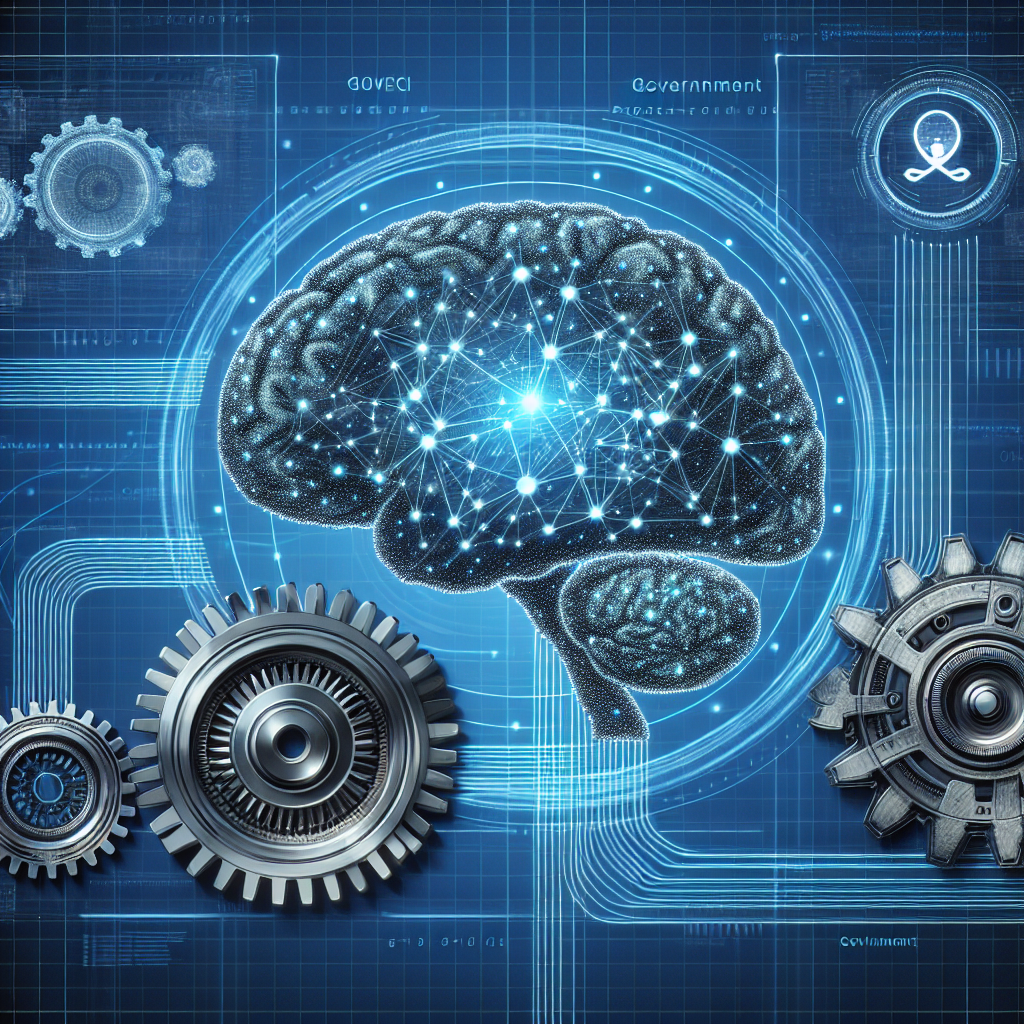In recent years, the adoption of artificial intelligence (AI) technology has significantly transformed various industries, including government procurement processes. AI has the potential to streamline and automate the procurement process, making it more efficient, cost-effective, and transparent. By leveraging AI tools, government agencies can improve decision-making, enhance vendor management, and ultimately deliver better services to the public. In this article, we will explore the benefits of AI in improving government procurement processes and address common questions about its implementation.
Benefits of AI in Government Procurement Processes
1. Efficient and Accurate Data Analysis: AI technology can help government agencies analyze large volumes of data quickly and accurately. By using machine learning algorithms, AI systems can identify patterns and trends in procurement data, helping agencies make informed decisions and optimize their procurement processes.
2. Improved Supplier Management: AI can enhance vendor management by evaluating supplier performance, identifying potential risks, and suggesting suitable suppliers for specific procurement needs. By automating supplier selection and management processes, government agencies can ensure compliance with regulations and improve relationships with suppliers.
3. Cost Savings: AI can help government agencies reduce costs by automating repetitive tasks, such as data entry, document processing, and contract management. By streamlining these processes, agencies can save time and resources, allowing them to focus on strategic initiatives and deliver better value to taxpayers.
4. Enhanced Transparency and Accountability: AI technology can improve transparency and accountability in government procurement processes by providing real-time insights into procurement activities. By making procurement data more accessible and understandable, AI can help prevent fraud, corruption, and inefficiencies in the procurement process.
5. Faster Decision-Making: AI can automate routine decision-making processes, such as bid evaluation and contract negotiation, allowing government agencies to make faster and more informed decisions. By leveraging AI tools, agencies can reduce turnaround times, improve procurement outcomes, and better serve the public.
6. Predictive Analytics: AI can help government agencies predict future procurement needs, trends, and risks by analyzing historical data and identifying patterns. By using predictive analytics, agencies can optimize their procurement strategies, anticipate potential challenges, and make proactive decisions to mitigate risks.
7. Enhanced Compliance: AI technology can help government agencies ensure compliance with procurement regulations and policies by automating compliance checks, monitoring procurement activities, and flagging potential violations. By improving compliance, agencies can reduce legal risks, enhance accountability, and build trust with stakeholders.
FAQs about AI in Government Procurement Processes
1. What types of AI technologies are commonly used in government procurement processes?
Common AI technologies used in government procurement processes include machine learning, natural language processing, robotic process automation, and predictive analytics. These technologies can help automate repetitive tasks, analyze data, improve decision-making, and enhance compliance in procurement processes.
2. How can AI improve supplier management in government procurement?
AI can improve supplier management in government procurement by evaluating supplier performance, identifying risks, and suggesting suitable suppliers for specific procurement needs. By automating supplier selection and management processes, AI can help agencies build stronger relationships with suppliers, reduce costs, and improve procurement outcomes.
3. What are the key benefits of using AI in government procurement processes?
The key benefits of using AI in government procurement processes include efficiency, accuracy, cost savings, transparency, accountability, faster decision-making, predictive analytics, and enhanced compliance. By leveraging AI technologies, government agencies can streamline their procurement processes, optimize decision-making, and deliver better services to the public.
4. How can government agencies ensure the ethical use of AI in procurement processes?
Government agencies can ensure the ethical use of AI in procurement processes by establishing clear guidelines, policies, and procedures for AI adoption. Agencies should prioritize transparency, accountability, and fairness in their AI initiatives, and regularly monitor and evaluate the impact of AI on procurement outcomes.
5. What are some challenges of implementing AI in government procurement processes?
Some challenges of implementing AI in government procurement processes include data quality issues, lack of technical expertise, resistance to change, and concerns about privacy and security. To overcome these challenges, government agencies should invest in data quality management, provide training and support for staff, and address ethical and regulatory concerns related to AI adoption.
In conclusion, AI technology has the potential to revolutionize government procurement processes by improving efficiency, accuracy, transparency, and compliance. By leveraging AI tools, government agencies can streamline their procurement processes, reduce costs, and deliver better services to the public. However, it is important for agencies to address ethical, legal, and technical considerations when implementing AI in procurement processes to ensure its successful adoption and integration.

